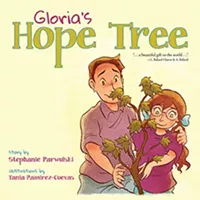Something is rotten in the state of North Carolina (Hamlet, Act I, Scene iv), specifically in the town of Stockton (number 39 on the Ventures list of "Fifty Top-Retirement Towns"), where Blue van Meer -- daughter of itinerant political science professor Gareth van Meer -- has come to spend the entirety of her senior year (a previously unmatched stretch of stability) at St. Gallway School. (Gallway, Blue explains in one of her compulsive glossing asides, was a paper baron who founded a school only because it was the easiest way to get a "Saint" placed before his name.) Inexplicably, on Blue's first day at school, golden boy Charles invites the quiet, reserved, mousy new kid to join the Gallway royalty: the "Bluebloods," the kids around whose compelling attraction the entire student body orbits. Before the year is out, Blue will have a makeover, get her first kiss, have her first drink (and, shortly afterward, her first drunken puke fest), and discover the body of Hannah Schneider, the mysterious film studies teacher who serves as surrogate cool aunt to all the Bluebloods.
Asheville-raised author Marisha Pessl's Special Topics in Calamity Physics starts off reading like the latest iteration of the whole "Gilmore Girls," "Dawson's Creek," "The OC," and "One Tree Hill" teen-to-twenty fantasy of brilliant and beautiful young people committing acts of breathlessly clever mischief in between stretches of anguish over troubles only the children of the very wealthy are privileged to suffer. And Blue herself presents at first as a prodigal walking encyclopedia forcing citations into her prose (per her father's advice) more as a performance of her erudition than as an enlightening aside.
But much is not as it seems in Stockton, and even the secrets conceal more secrets. Special Topics is many things -- a coming of age story, a postmodern caper, an ethnography of a certain segment of modern American youth -- but it is first and foremost an intellectual mystery. Who is Hannah Schneider, really? Was her death a suicide or something more sinister? Are the Bluebloods the merely quaintly troubled aristocrats-in-waiting they appear to be? Or are there demons of real consequence in their pasts? Do the fabled Nightwatchmen -- an international underground of radical freedom fighters who assassinate corporate leaders -- actually exist? And if so, do they have any connection to the strange happenings in tiny Stockton?
Pessl sets us to brushing away the decades of dust like an archaeologist, patiently and without insistence, and always with a sense of all that we can never know. America is a nation of knowers, Blue's father says. "And the idea that none of us can truly know anything at all -- not the lives of our friends or family, not even ourselves -- is a thought they'd rather be shot in the arm with their own semi-automatic rifle than face head on." And yet this is not a call to nihilism. Watching a little spider try to spin a web across a spectacularly too large and exposed space on their porch, Blue's father explains, "She's making sense of the world. ... She's sewing it together as best she can."
Repeatedly, we come to a better understanding of the characters in Special Topics only to discover that our understanding was flawed and must be revised again. No, not quite so exotic, or no, not quite so mundane. (And Blue reflects eloquently on the attraction that draws us to both of those extremes.) And then just when we maybe actually do kind of understand a character, they go off and change on us. In the end, there are some answers, tentative and fragile, but also ellipses, questions, threads twisting in the softest wind.
Complex philosophy notwithstanding, Pessl has a playful way with language. She does a spot-on imitation of local news speak, and the over-the-top performances of Blue's father whenever he has an audience leave you at once in awe of his irresistible momentum and squirming on Blue's behalf for the scene he's making.
Pessl reveals as much in her characters' pauses and stumbles as she does in what they actually say or do. There is a quality to Hannah that Blue is reduced to expressing with a length of whitespace and nothing more. And though Pessl would probably resist the idea that the novel has a "point," in the open spaces there is a suggestion that all you can know is never enough (and not really that much after all). It's in casting threads across the wide empty spaces that we come the closest to understanding that ever we can.
Marisha Pessl reads from Special Topics in Calamity Physics, Aug. 10, 7pm at Park Road Books, 4139 Park Road. 704-525-9239. www.parkroadbooks.com.
Special Topics in Calamity Physics
Marisha Pessl, (Viking, 514 pages, $25.95)
Latest in Books
More by Thomas Bell
-
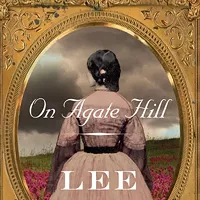
Something Like a 'Phenomena'
Oct 4, 2006 -

My Antihero, Zero
Sep 20, 2006 -
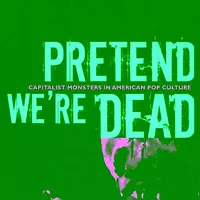
Marx as a Mummy
Sep 6, 2006 - More »
Calendar
-
 RuPaul's Drag Race Werq The World Tour 2025 @ Ovens Auditorium
RuPaul's Drag Race Werq The World Tour 2025 @ Ovens Auditorium -
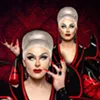 Boulet Brothers Dragula: Season 666 Tour @ N.C. Music Factory
Boulet Brothers Dragula: Season 666 Tour @ N.C. Music Factory -
 Jim Norton @ The Underground
Jim Norton @ The Underground -
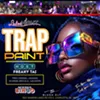
Trap & Paint + Music Bingo @ Blush CLT
-
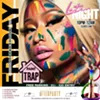
Trap & Paint (Hookah Edition) @ Blush CLT


